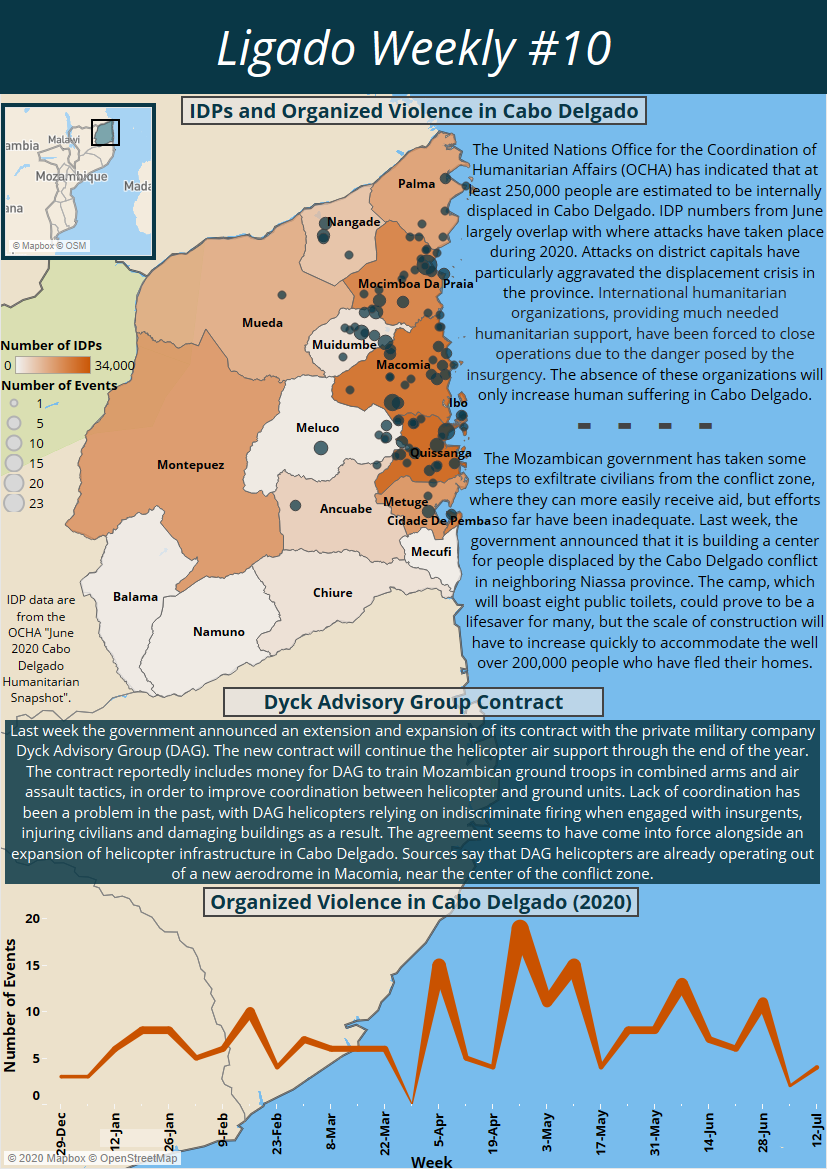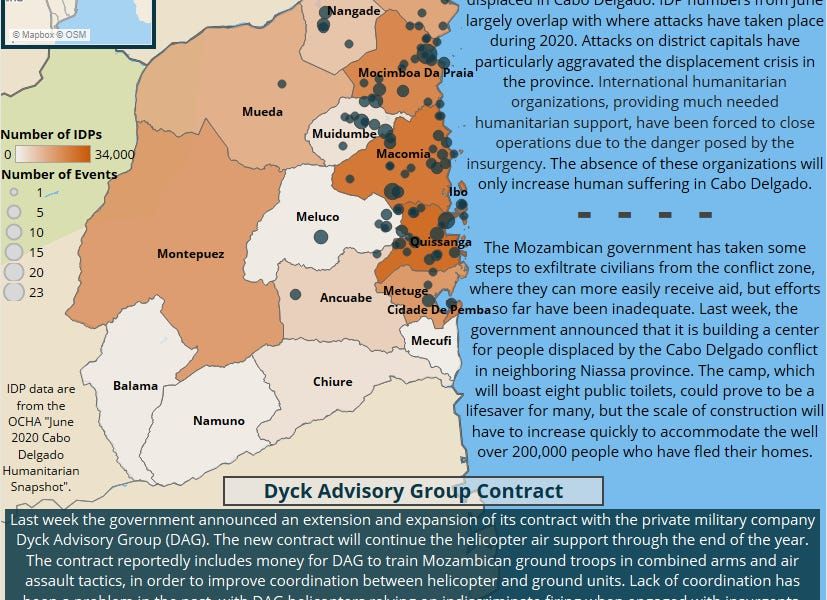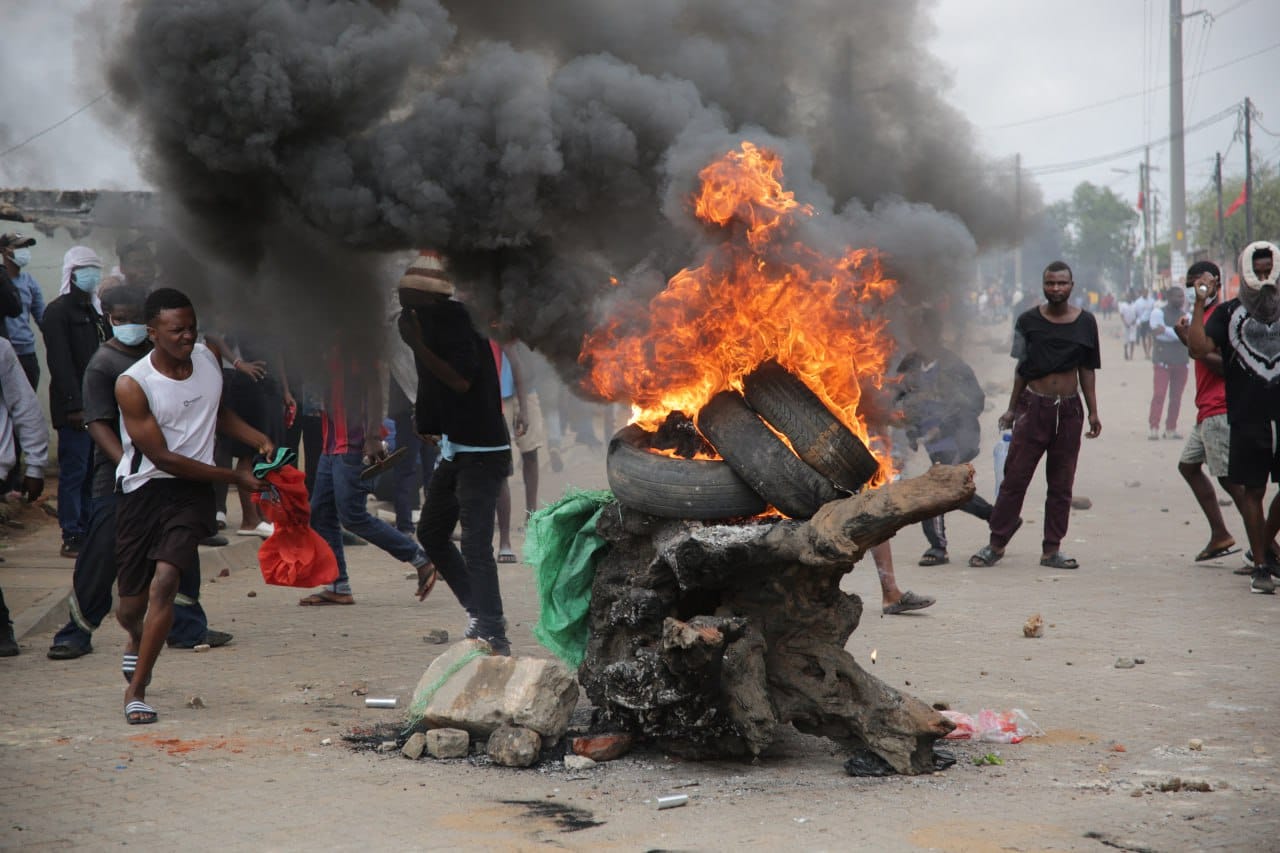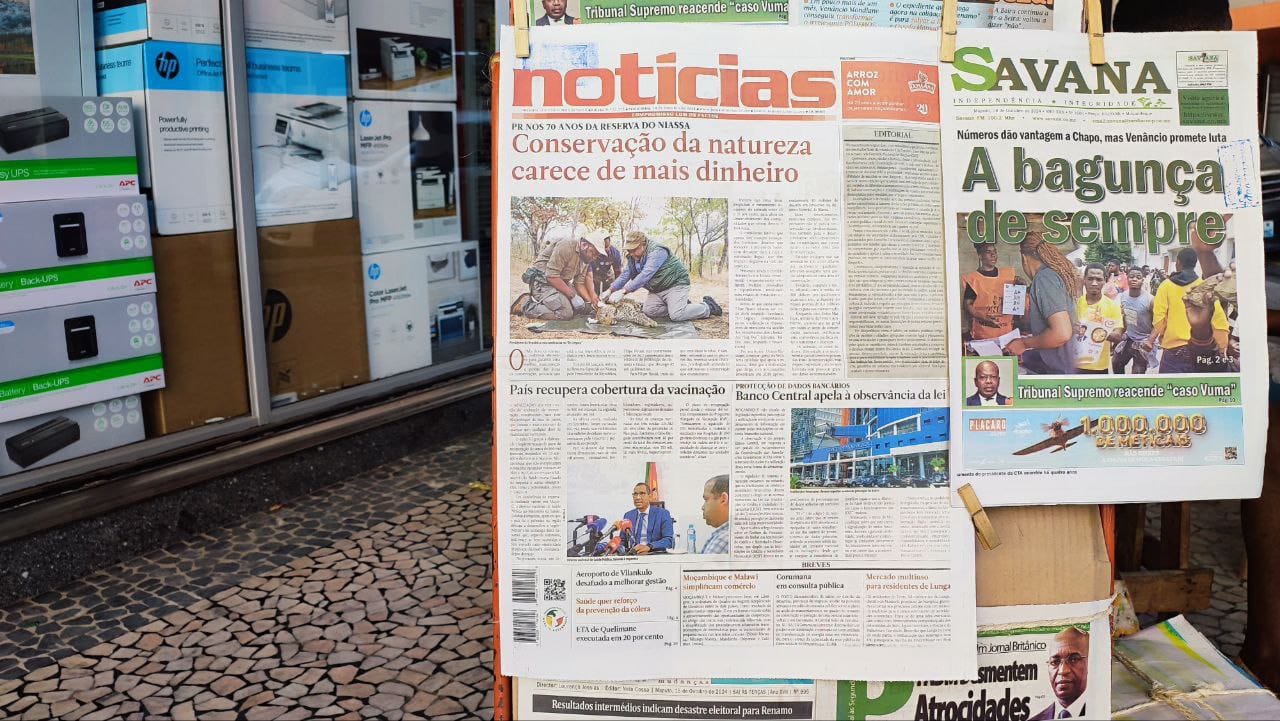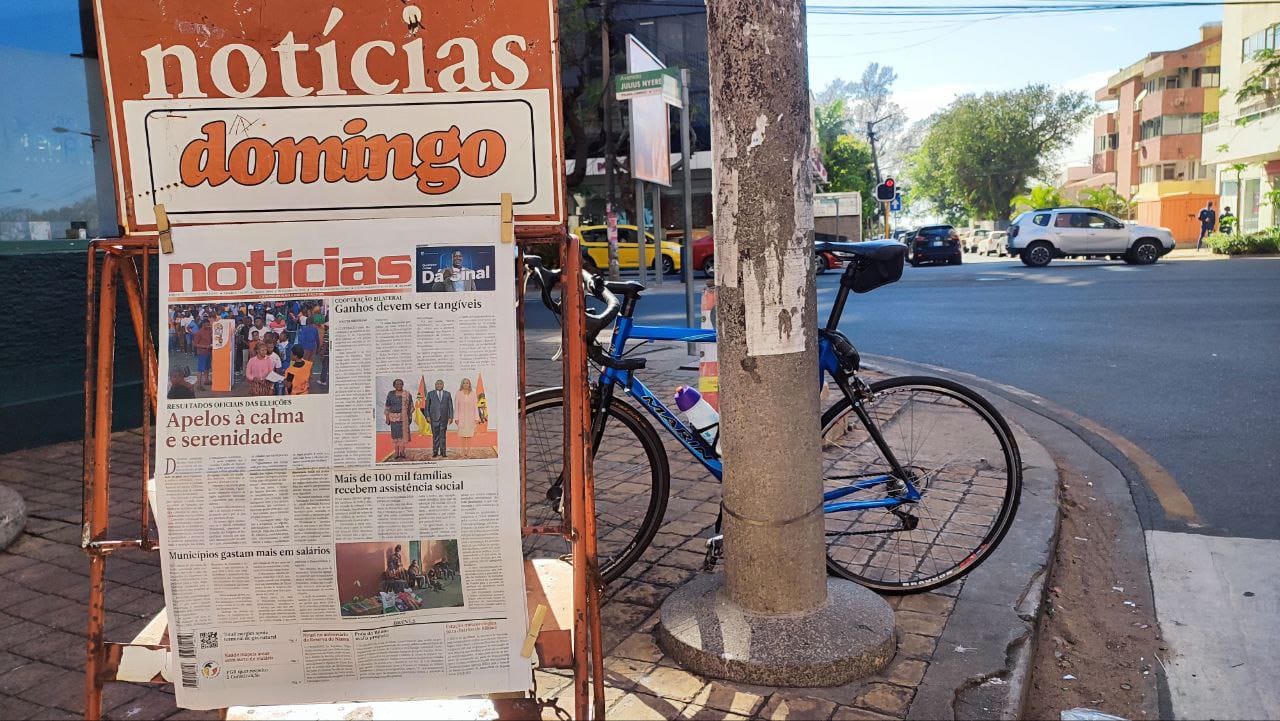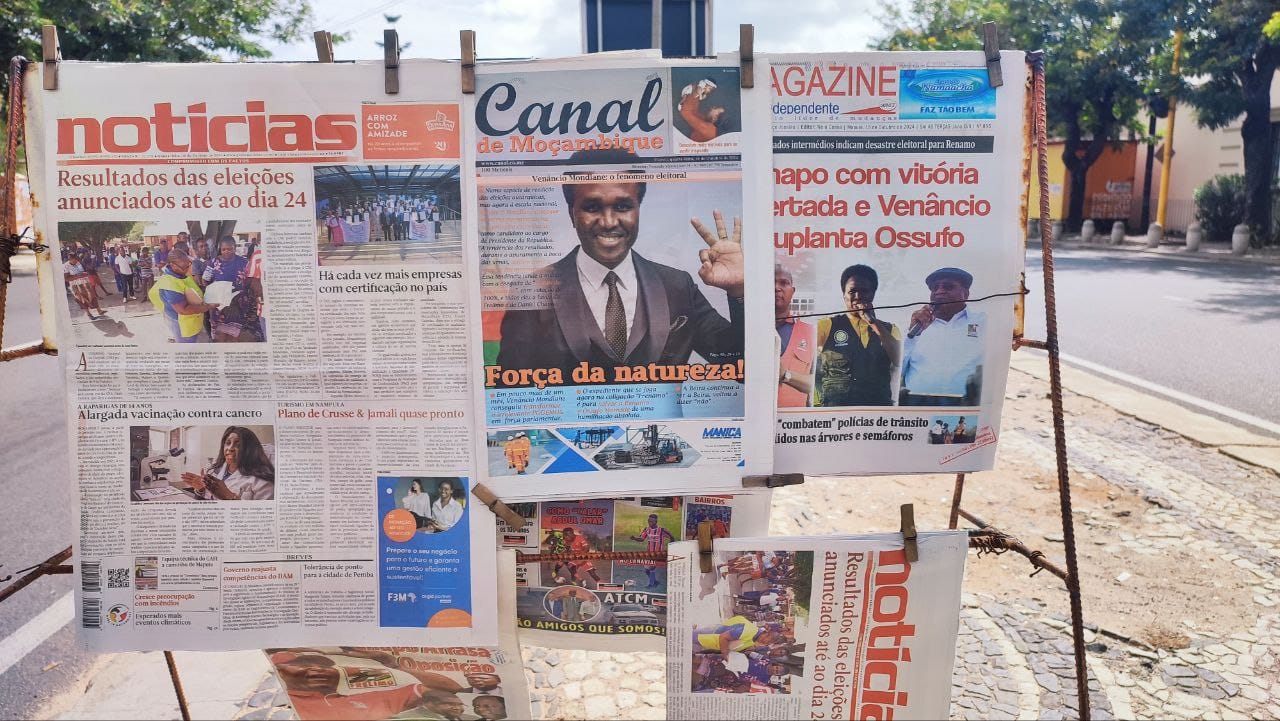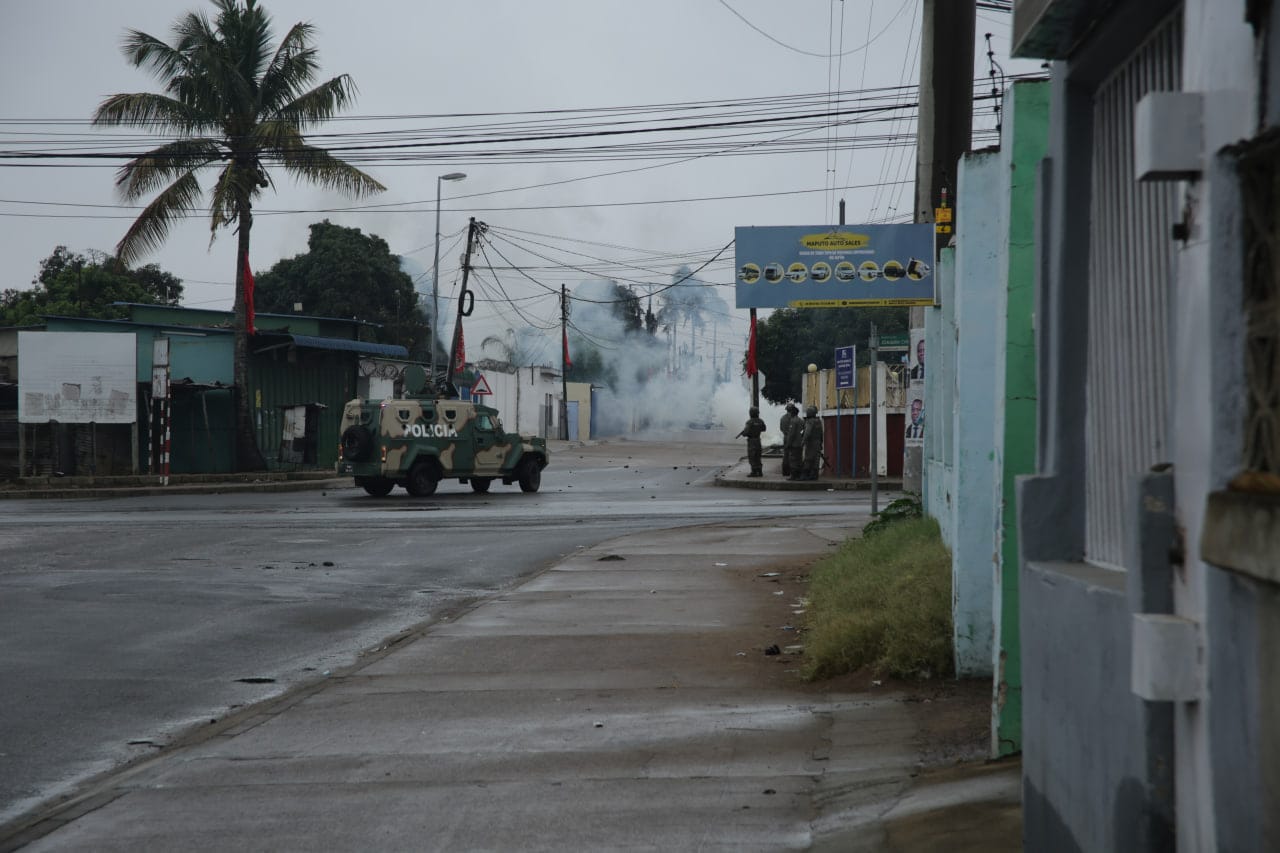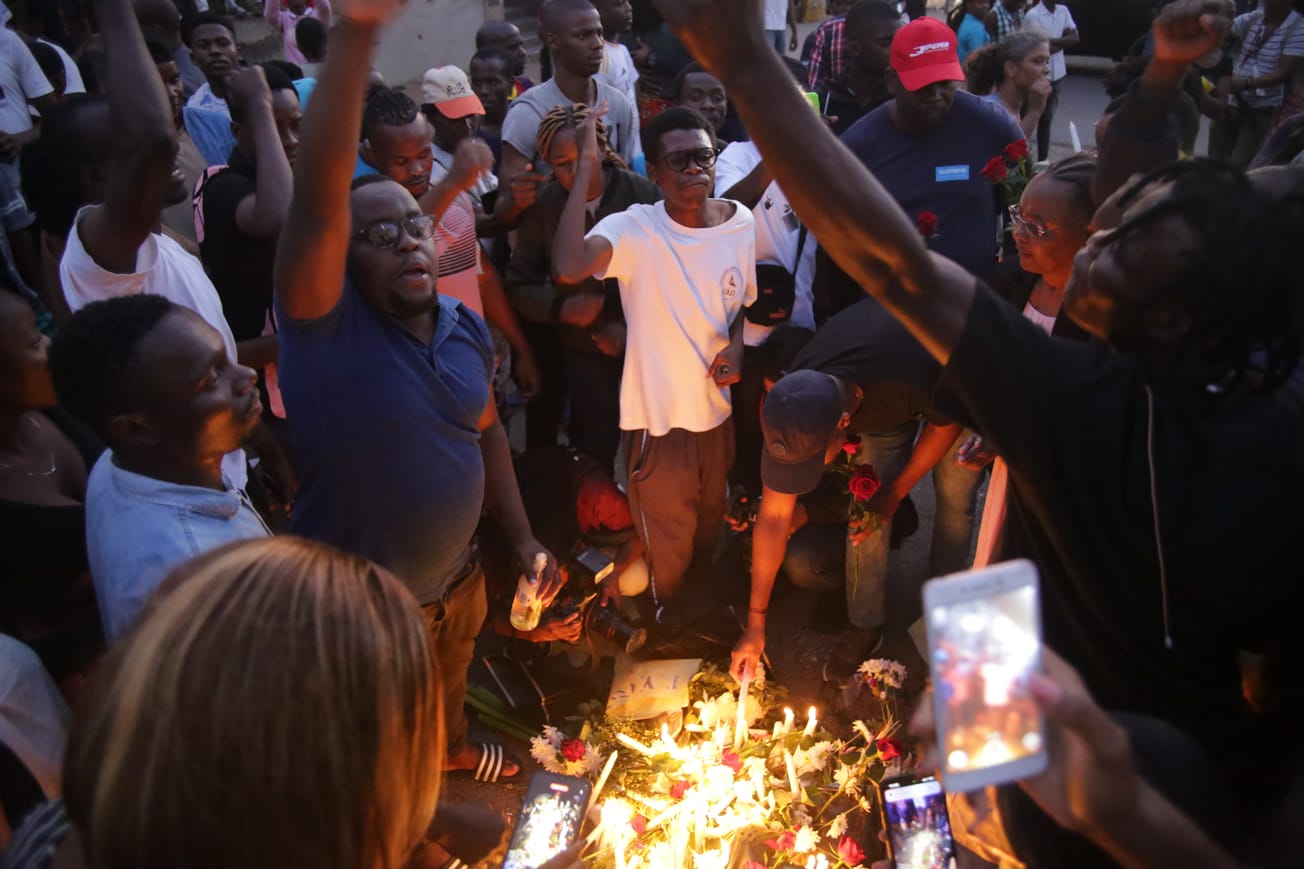The Zitamar Daily Briefing now has a sister publication — the Angola Economic Briefing. Click here to find updates, analysis, and forecasts on Angola’s economic and political developments, twice a week.
Agenda:
- Today: Mozambican Oil and Gas Chamber holds its summit on strategic African content and suppliers by webinar, 14.30 Maputo time (details here)
The latest from Zitamar News:
Cabo Ligado Weekly: 13-19 July 2020
The civilian security situation in Cabo Delgado worsened further last week, as spreading disease joined insurgent and state violence as a direct threat to civilian lives in Mozambique’s northeast
Mocímboa da Praia ‘could disappear’, locals warn, as police take over
Mocimboa da Praia town is in ruins following weeks of fighting and looting, with much of its population having fled
Cabo Delgado insecurity allows drug trafficking ‘to thrive’, US warns
The deteriorating security situation in Cabo Delgado in northern Mozambique is enabling drug traffickers, as well as insurgents, “to thrive,” according to the US Bureau of International Narcotics and Law Enforcement Affairs
From the Zitamar Live Blog:
Follow on Telegram or on our website
Active covid-19 cases reach over 1,000 for first time
29 new cases were reported on Tuesday
The best of the rest:
- Police deny rumours they tortured group of refugees with dogs (Pinnacle News)
- Government defines criteria for the “new normal” following state of emergency (O País)
- Indian ex-hostage leaves Mozambique over extortion threats (Canal de Moçambique)
- Mozambique resumes pulses exports to China and Dubai (Notícias)
- Construction of elevated railway line for Maputo’s ‘Metro Bus’ project delayed (Rádio Moçambique)

Police deny rumours they tortured group of refugees with dogs (Pinnacle News)
Police in Mozambique told the press on Monday that they had briefly detained a number of youths, who had arrived from one of the districts in Cabo Delgado province affected by the insurgency, in order to find out where they had come from and where they were going. The police expressed regret about the fact that there was a recording on social media last week, in which a female voice described the youths being arrested and possibly bitten by dogs. Police denied this and promised to find the woman, whom they said they had already identified, as part of a possible ongoing investigation by the police and criminal investigation service Sernic in Pemba, the provincial capital.
It has taken a week for the police to deny torturing 15 people in Pemba. When Zitamar called the spokesman in the city last week, a day after the supposed incident, he was unable to confirm or deny it. Now the target of the police’s ire is the woman on the recording recounting the incident.
Government defines criteria for the “new normal” following state of emergency (O País)
The government will issue requirements for the reopening of churches, commercial establishments like barracas (retail shacks) and sports activities in the next few days as the final phase of the state of emergency ends next week. The guidelines will be sent to the directorates of each sector soon, the spokesman for the Council of Ministers, Filimão Suaze, said on Tuesday.
It doesn’t seem like the right time to be opening up the country, as cases of covid-19 and community transmission continue to rise. However, in reality, as with plans for reopening schools, many venues may need to stay shut as they will not immediately be able to meet the hygiene and social distancing criteria.
Indian ex-hostage leaves Mozambique over extortion threats (Canal de Moçambique)
The Indian entrepreneur and philanthropist Rizwan Adatia has left Mozambique following attempts at extortion by the group that kidnapped him earlier this year. According to Canal de Moçambique, Adatia and the Mozambican businessman Manish Cantilal, who were supposedly rescued by the authorities on 20 May, continue to receive threatening messages by WhatsApp demanding they pay the ransom amount since, according to the newspaper, Adatia was only released by the kidnappers as a result of the Indian government’s pressure on the Mozambican government, and because part of the ransom had been paid. The kidnappers were adding $1000 for every day the ransom was not paid, and have warned the former hostages not to waste time complaining to the authorities because the organization is large and is protected inside the Mozambican state. Indian prime minister Narendra Modi has advised all the country’s business people to return to India, Canal reports, and says it has found that the Indian and Muslim communities have paid about $350m since the beginning of the wave of kidnappings in 2011, with some 150 families having left the country.
Mozambique resumes pulses exports to China and Dubai (Notícias)
Mozambique has resumed exporting pulses to China and Dubai after an interruption caused by restrictions imposed by the covid-19 pandemic, the chairman of the National Cereals Institute (ICM), Mohamed Valá, said. Initially 20,000 tonnes of pigeon peas and lentils will be exported, and Mozambique has a target of selling 200,000 tonnes to those two markets this year. Exports are being made through the port of Nacala, in Nampula province, Valá said. China and Dubai have emerged as alternative export markets to India, which was the main destination for pulses produced in the country, but has now put import restriction in place due to overproduction by Indian producers.
The Noticias article does not mention which companies were awarded the right to export to China and Dubai and at what price. Mozambique still has a memorandum of understanding with India for the export of pigeon peas, in a process under which national producers can apply to ICM for an export quota, but the certification process is opaque. There are accusations that ICM is allocating quotas to unauthorised operators, who have no product to export, while the pigeon pea crops from genuine producers have no market. One businessman told Zitamar he was abandoning the market due to lack of transparency. In 2019, during a meeting with traders in Nacala, the question was put to the then minister of industry and commerce, Ragendra de Sousa, who acknowledged the problem and promised to make the process “more transparent, fair and democratic,” although no changes to the system have been made, and he has since been replaced by Carlos Mesquita. Zitamar tried many times to contact ICM to clarify the situation, but they have not responded to our questions.
Construction of elevated railway line for Maputo’s ‘Metro Bus’ project delayed (Rádio Moçambique)
The start of construction of a 27km elevated railway line along the Maputo ring road, originally scheduled to start this year, has been delayed until 2021 because of the covid-19 pandemic, the president of the board of directors of Sir Motors, Amad Camal, said. The $60m project is designed to support the expansion of the services by transport company Metro Bus, which plans to set up a train and bus network to connect the cities of Maputo and Matola with the towns of Boane and Marracuene.
Company Announcements
- The National Institute of Statistics published consumer price indices for the cities of Quelimane, Inhambane, Chimoio, Tete, Xai-xai, Lichinga and Pemba for June 2020
Infographic of the Day
